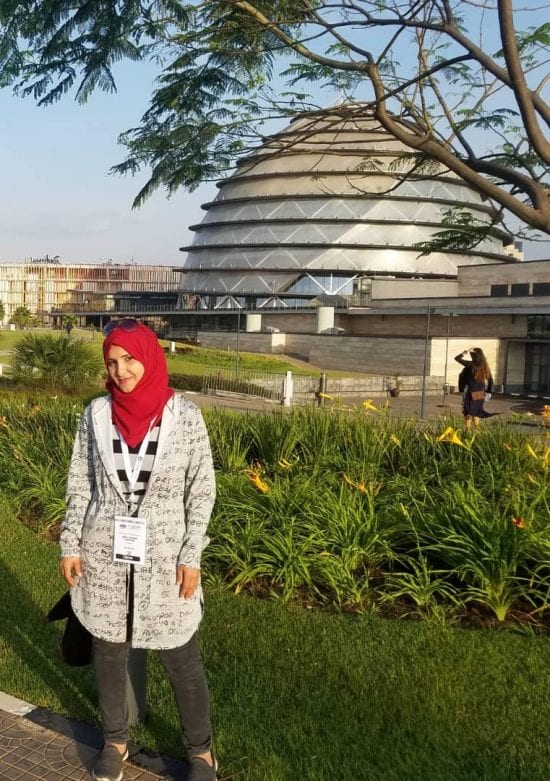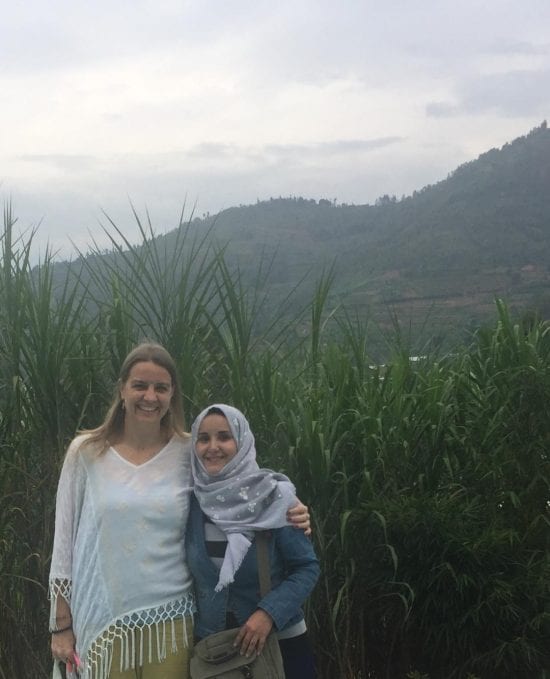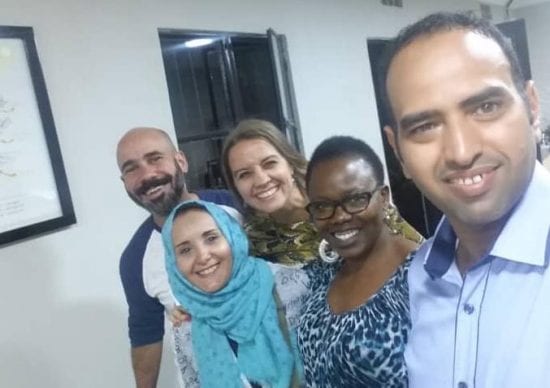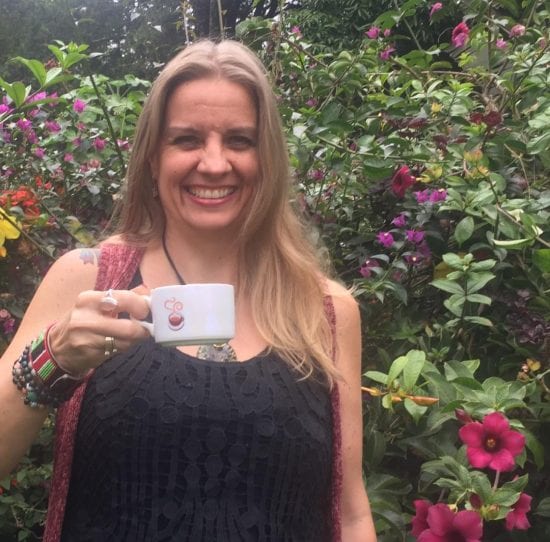
We talk to the owner of Rover Bird, an exporting company in Yemen.
BY ERIKA KOSS
SPECIAL TO BARISTA MAGAZINE ONLINE
If you’re a coffee professional, you’ve likely read the adventurous story of Mokhtar Alkhanshali, told by Dave Eggers in the New York Times best-selling book The Monk of Mokha, and are aware of Mokhtar’s export business, launched in 2016, called Port of Mokha.
But have you heard about the Queen of Mokha coffee brand and Rover Bird, the Yemeni company that exports it? In February 2019, I interviewed its visionary founder, Sameeha Mohammed—likely Yemen’s only female exporter—at the Question Coffee Café in Kigali, Rwanda.
Note from the editor: This interview has been condensed for clarity. Small words and phrases have been translated from Arabic to English by Mohammed Hussein.

When did you begin working in coffee?
I started as an exporter in 2009, first by exporting Yemeni coffee to Japan and Saudi Arabia.
What led to your desire to create Rover Bird?
In 2000, I graduated from university and started working as an accountant. But later, I wanted to have my own business, so I began my first business as a workshop owner for sewing and photography. I come from a poor family, so I needed to help them, especially after my mother died and my father stopped his work. But I wanted to do even more to make life easier for us all, including my brother and sister. So in 2009, I created Rover Bird and opened my own office to export coffee. I was focused on coffee, and my sister was working in the tailor shop. But then in 2011, the revolution started in my country, so several times, I had to close both the shop and Rover Bird.
I think it’s true that in the whole world of coffee there are not too many female exporters. What do you think?
I will tell you a story. When I started this business, my whole family refused. My father was shouting at me, “Why are you entering this business? This is for men, not for you.” But it was because he was afraid, because he thought I would have to travel and work always with men.
But I told him, “No, it’s not a problem. I will be OK, don’t worry! I will not travel at all!”
Exactly, no travel, and here we are, meeting in Rwanda!
Yes! But I insisted with him because when I want to do something, no one can take me from this way. No! If I have problems on the way, I told myself, I have to face the problem, even the difficult things.
Why were you so insistent, even though your father and others discouraged you so much? Was there something special about coffee in general, or about exporting in particular, that made you so willing to face all these challenges?
I like to drink coffee. This coffee is something I’ve been drinking since I was a child. And now, I like to see Yemeni products—especially Yemeni coffee. Because people around the world forget, what is Mokha? They don’t remember ours is the first port to export coffee all around the world! And what is Yemeni coffee? In the past times, people knew of Yemen because of the coffee. I want to be part of making Yemeni coffee and the Mokha port well-known again, all around the world.
Do you know any other women exporters in Yemen?
To my knowledge, I am the only woman exporter in my country. Many people, when they meet me, they are surprised. They ask me, “Wow, you’re an exporter?” I say, “Yes.” And they say, “Wait, women can export coffee? But this is a man’s job.”
What is something you love about working as an exporter of coffee?
I like to meet people from around the world.

What are the biggest challenges for you now?
The challenge is the travel. It’s very difficult for me. I could only begin traveling four years ago. Before that I couldn’t. And there is a challenge when I deal with the men in my country. Most men in Yemen think there is a problem to deal with women in business. They’d rather negotiate with men. When they face women, they feel a little worried.
I really like the name of your company, Rover Bird. Did you choose that name? What does it mean to you?
Yes, I did, because I wanted a name that could gather many meanings. Birds can go to many areas, countries, and places. Rover, it just means traveling.

Like you! I think of both you, and the coffee, as rover birds.
Yes, but it’s not a brand name. I have a brand of coffee called Queen of Mokha. That is the name of my coffee, because Mokha is the port, and I am a queen of this kind of coffee.
Earlier this year, you successfully led the creation of the first chapter in Yemen of the International Women in Coffee Alliance. As the chapter president, what are your goals?
To help make women’s lives better in Yemen. I will work with the members, and through my company, we will try to advance women’s work so the future will be better for women in coffee in Yemen.
When you think about the future of your company and Yemeni coffee, what is your dream?
I have more than one dream. But one is that I want to make a company in Europe with cafés around the world, so our coffee can reach all around the world, Inshallah.

ABOUT THE AUTHOR:
Erika Koss’ coffee career began in 1995 as a barista in San Diego. Now living in Nairobi, Kenya, she is a Research Associate at the University of Nairobi, a Ph.D. candidate in International Development Studies at Saint Mary’s University in Halifax, Nova Scotia, and an Authorized SCA Trainer. Follow her on Instagram @aworldinyourcup.

